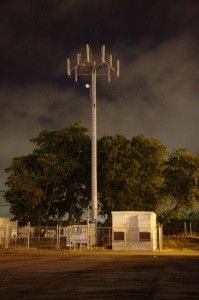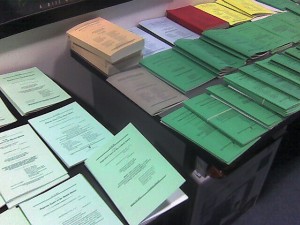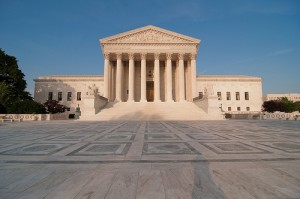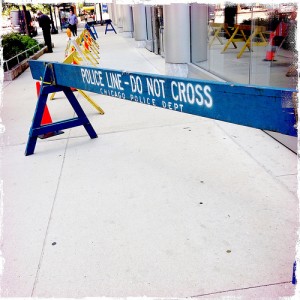Posted
23 Sep 2014 in IMLA Briefs
Its simple math. Really. But will the Supreme Court do it? The Eleventh Circuit refused.
The question in
Alabama Department of Revenue v. CSX Transportation is whether a state discriminates against rail carriers in violation of federal law even when rail carriers pay
less in total state taxes than motor carriers? No, argues the State and Local Legal Center (SLLC) in an
amicus brief. Forty-two states exempt motor carriers from sales tax on diesel fuel. This case is relevant to local government because a number of cities and counties in Alabama impose an additional sales tax on railroad diesel fuel.

Rail carriers (railroads) in Alabama pay a four percent sales tax on diesel fuel. Motor carriers (trucks) pay an excise tax of 19-cents per gallon and no sales tax. The Railroad Revitalization and Regulatory Reform Act (4-R) prohibits state and local governments from imposing taxes that discriminate against railroads. Since CSX filed its complaint, railroads paid
less in sales tax than trucks paid in excise tax. But, the Eleventh Circuit refused to compare the total taxation of railroads and trucks to avoid the “Sisyphean burden of evaluating the fairness of the State's overall tax structure.” Instead it concluded Alabama’s sales tax on railroads violates 4-R because Alabama’s competitors don’t pay it.
The SLLC brief argues that given state’s traditional power to tax the Court should interpret 4-R narrowly. The brief suggests the Court could take three approaches to rule in favor of Alabama.
 Rail carriers (railroads) in Alabama pay a four percent sales tax on diesel fuel. Motor carriers (trucks) pay an excise tax of 19-cents per gallon and no sales tax. The Railroad Revitalization and Regulatory Reform Act (4-R) prohibits state and local governments from imposing taxes that discriminate against railroads. Since CSX filed its complaint, railroads paid less in sales tax than trucks paid in excise tax. But, the Eleventh Circuit refused to compare the total taxation of railroads and trucks to avoid the “Sisyphean burden of evaluating the fairness of the State's overall tax structure.” Instead it concluded Alabama’s sales tax on railroads violates 4-R because Alabama’s competitors don’t pay it.
The SLLC brief argues that given state’s traditional power to tax the Court should interpret 4-R narrowly. The brief suggests the Court could take three approaches to rule in favor of Alabama.
Rail carriers (railroads) in Alabama pay a four percent sales tax on diesel fuel. Motor carriers (trucks) pay an excise tax of 19-cents per gallon and no sales tax. The Railroad Revitalization and Regulatory Reform Act (4-R) prohibits state and local governments from imposing taxes that discriminate against railroads. Since CSX filed its complaint, railroads paid less in sales tax than trucks paid in excise tax. But, the Eleventh Circuit refused to compare the total taxation of railroads and trucks to avoid the “Sisyphean burden of evaluating the fairness of the State's overall tax structure.” Instead it concluded Alabama’s sales tax on railroads violates 4-R because Alabama’s competitors don’t pay it.
The SLLC brief argues that given state’s traditional power to tax the Court should interpret 4-R narrowly. The brief suggests the Court could take three approaches to rule in favor of Alabama.









